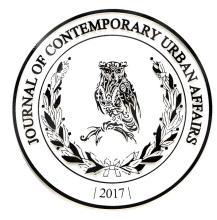Resource information
The study delves into the realm of adaptive reuse exploring its potential in sustainable urban development particularly focusing on public buildings within the cultural and creative sectors Through a multiple case study analysis both qualitative and quantitative methods were employed to scrutinize design strategies and spatial transformations in recent adaptive reuse projects of existing structures This research investigates the evolution of adaptive reuse highlighting its historical and theoretical underpinnings and subsequently examines contemporary approaches towards existing structures in cultural creative and public domains The study findings reveal common characteristics and innovative design strategies employed in recent adaptive reuse projects emphasizing the transformative potential of neglected or abandoned urban spaces Utilizing a comprehensive methodology involving case study analyses and diverse data collection techniques the research underscores the significance of adaptive reuse as an established practice in contemporary architectural and urban design The articles contribution to the social and economic dimensions of urban development lies in understanding and promoting sustainable resourcesaving strategies This work paves the way for future research suggesting potential expansions in creating an atlas of adaptive reuse and exploring comparative analyses between existing reuse and new construction specifically focusing on public buildings with civiccultural uses


